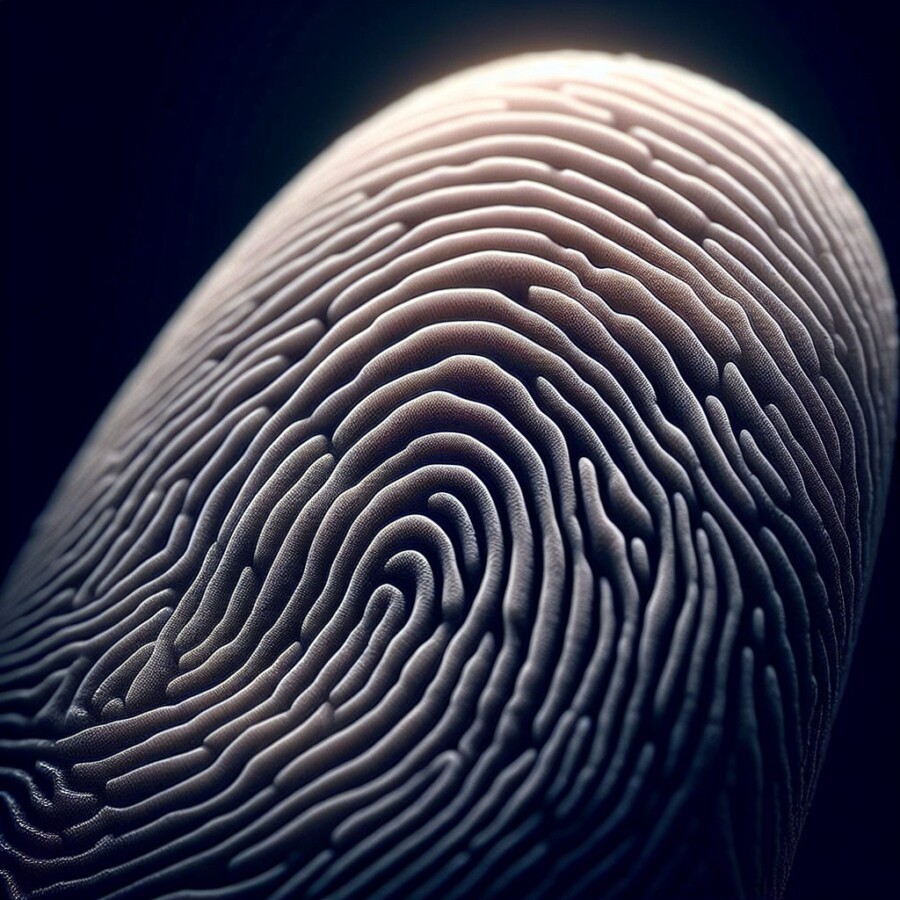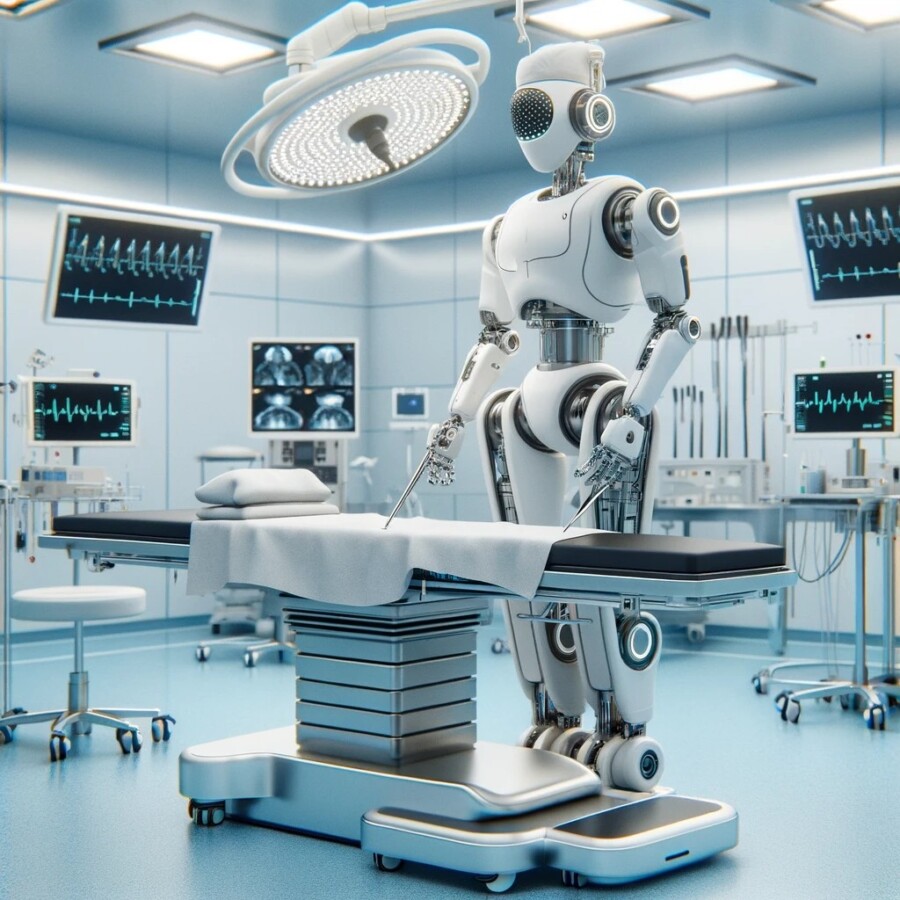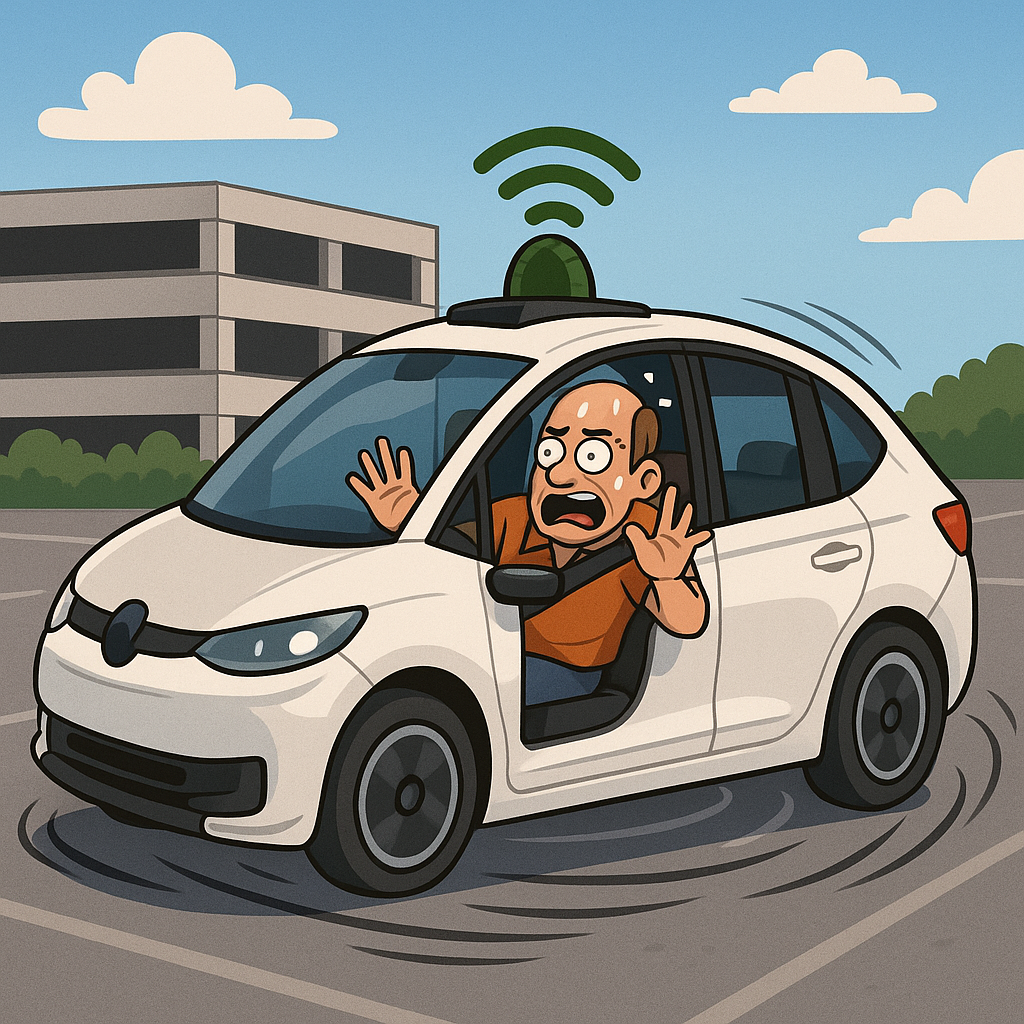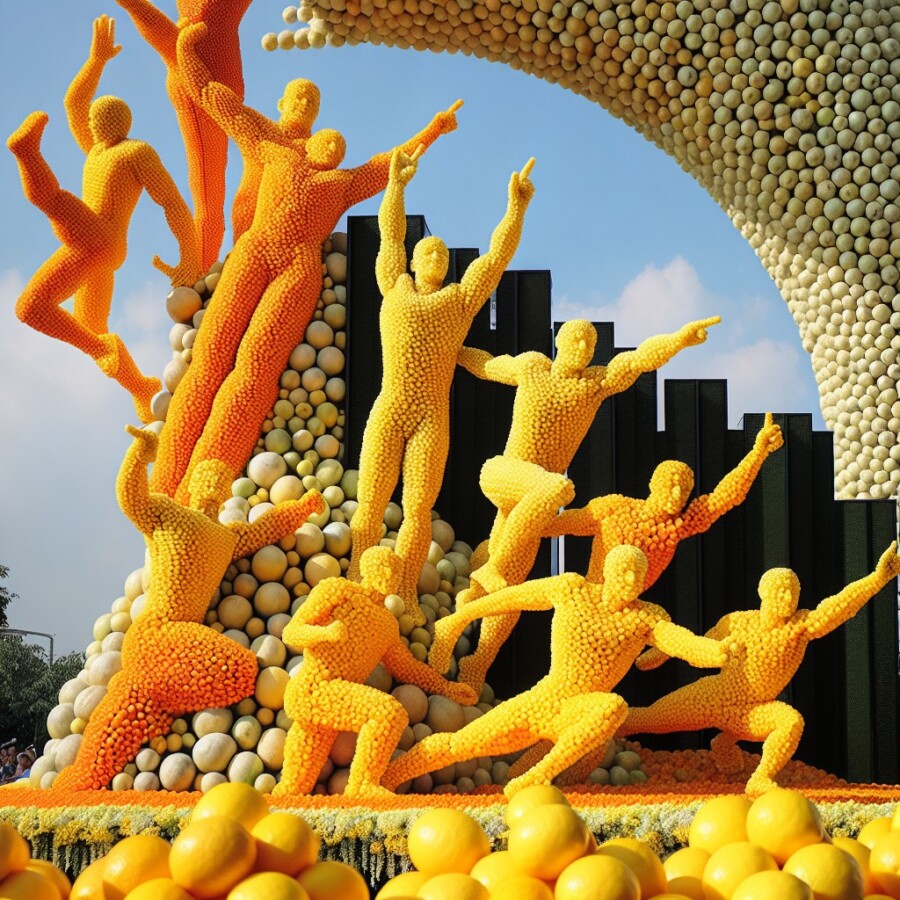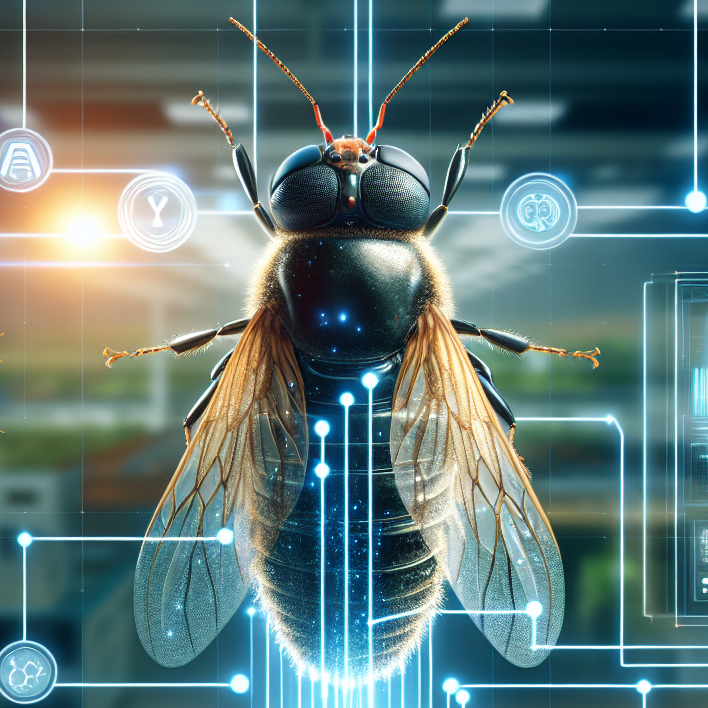Scientists did a study and found out that fingerprints might not be totally different for each finger. They used a computer program to look at lots of fingerprints. The program could guess if different fingerprints were from the same person. But the scientists don’t know exactly how the program does this.
This study is important because it could help solve crimes. Right now, if police find different fingerprints at different places, they can’t tell if they are from the same person. The new computer program might be able to tell if they are. But the scientists say they need to study more before the program can be used in court.
Some people who know a lot about fingerprints are not sure about the study. They wonder if the things the program looks at change when you touch something or as you get older. The scientists agree that they don’t know everything about how the program works. This is a common problem with computer programs like this. The study was checked by other scientists and will be in a science magazine.
Original news source: Our fingerprints may not be unique, claims AI (BBC)
🎧 Listen:
Slow
Normal
Fast
📖 Vocabulary:
| 1 | fingerprints | The marks left by the tips of your fingers, which can be used to tell who you are |
| 2 | computer | An electronic machine that can store, organize, and find information, do calculations, and control other machines |
| 3 | program | A set of instructions that a machine follows to do a job |
| 4 | crimes | Things people do that are against the law |
| 5 | police | The people who work to keep a community safe and make sure laws are followed |
| 6 | court | The place where legal cases are heard and decided by a judge and sometimes a jury |
| 7 | study | To try to learn more about something by getting information and examining it |
| 8 | scientists | People who know a lot about a certain subject and work to learn more about it |
| 9 | magazine | A type of book with lots of pages that comes out regularly and has articles and pictures |
| 10 | common | Something that happens a lot or is found in many places |
| 11 | checked | To look at something carefully to make sure it is correct or good |
| 12 | different | Not the same as another thing or person |
Group or Classroom Activities
Warm-up Activities:
– Vocabulary Pictionary
Instructions: Divide the class into small groups. Give each group a list of vocabulary words related to the article (e.g. fingerprints, computer program, study, crimes). One student from each group takes turns choosing a word and drawing it on the board while the rest of the group tries to guess the word. The group that guesses correctly gets a point. The group with the most points at the end wins.
– Headline Creation
Instructions: Divide the class into pairs. Give each pair a headline template (e.g. “Scientists Discover _______ about Fingerprints”). Students take turns filling in the blank with a word or phrase related to the article. They can use words from the article or their own ideas. After both students have filled in the blank, they share their headlines with each other and discuss why they chose those words.
– Opinion Spectrum
Instructions: Write two statements on the board related to the article (e.g. “Fingerprints are unique to each person” and “Computer programs can accurately identify fingerprints”). Divide the class into two groups and have them stand on opposite sides of the room. Explain that one side represents “Agree” and the other side represents “Disagree”. Read out the statements and have students move to their respective sides based on their opinion. Give students a chance to explain their opinions to each other.
– Keyword Hangman
Instructions: Write the key vocabulary words from the article on the board, leaving out a few letters from each word. Divide the class into small groups. One student from each group takes turns guessing the missing letters to complete the word. If they guess correctly, their group earns a point. The group with the most points at the end wins.
– Future Predictions
Instructions: In pairs, students take turns making predictions about the future of fingerprint technology based on the article. They can discuss questions like: “Will fingerprint technology become more accurate in the future?” “Will computer programs replace human fingerprint experts?” Afterwards, students share their predictions with the class and explain their reasoning.
🤔 Comprehension Questions:
1. What did scientists find out about fingerprints?
2. How did the computer program help the scientists?
3. Why is this study important for solving crimes?
4. Can the computer program be used in court right now?
5. What are some concerns that people have about the study?
6. Why don’t the scientists know everything about how the program works?
7. Who checked the study before it was published in a science magazine?
Go to answers ⇩
🎧✍️ Listen and Fill in the Gaps:
Scientists did a study and found out that (1)______prints might not be totally different for each finger. They used a computer program to (2)______ at (3)______ of fingerprints. The program could guess if different fingerprints were from the same person. But the scientists don’t know exactly how the program (4)______ this.
This study is important because it could help solve crimes. Right now, if police find (5)______ (6)______ at different places, they can’t tell if they are from the same person. The new computer program might be able to (7)______ if they are. But the scientists say they need to study more before the program can be used in court.
Some people who know a lot about fingerprints are not sure about the study. They wonder if the things the program (8)______ at (9)______ when you touch something or as you get (10)______. The (11)______ (12)______ that they don’t know everything about how the program works. This is a common problem with computer programs like this. The study was checked by other scientists and will be in a science magazine.
Go to answers ⇩
💬 Discussion Questions:
Students can ask a partner these questions, or discuss them as a group.
1. What is a fingerprint?
2. How do you think fingerprints can help solve crimes?
3. Do you think it’s important for scientists to study fingerprints? Why or why not?
4. How would you feel if you found out that your fingerprints might not be totally different for each finger?
5. Do you like the idea of using a computer program to guess if different fingerprints are from the same person? Why or why not?
6. What do you think are some things the program might look at to determine if fingerprints are from the same person?
7. Do you think the program would work the same way for everyone, or do you think it might change depending on things like touching something or getting older? Why or why not?
8. How do you think the police feel about this new computer program? Why?
9. Do you think the program should be used in court to help solve crimes? Why or why not?
10. What do you think are some other ways that scientists could study fingerprints?
11. How do you think the scientists feel about not knowing everything about how the program works?
12. Why do you think it’s important for the study to be checked by other scientists and published in a science magazine?
Individual Activities
📖💭 Vocabulary Meanings:
Match each word to its meaning.
Words:
1. fingerprints
2. computer
3. program
4. crimes
5. police
6. court
7. study
8. scientists
9. magazine
10. common
11. checked
12. different
Meanings:
(A) A type of book with lots of pages that comes out regularly and has articles and pictures
(B) Things people do that are against the law
(C) An electronic machine that can store, organize, and find information, do calculations, and control other machines
(D) People who know a lot about a certain subject and work to learn more about it
(E) A set of instructions that a machine follows to do a job
(F) Something that happens a lot or is found in many places
(G) The marks left by the tips of your fingers, which can be used to tell who you are
(H) To look at something carefully to make sure it is correct or good
(I) To try to learn more about something by getting information and examining it
(J) Not the same as another thing or person
(K) The place where legal cases are heard and decided by a judge and sometimes a jury
(L) The people who work to keep a community safe and make sure laws are followed
Go to answers ⇩
🔡 Multiple Choice Questions:
1. What did scientists use to study fingerprints?
(a) A microscope
(b) A magnifying glass
(c) A camera
(d) A computer program
2. Why is this study important?
(a) It could help find lost items
(b) It could help solve crimes
(c) It could help identify animals
(d) It could help improve computer programs
3. What can the computer program do?
(a) Guess if different fingerprints are from the same person
(b) Guess a person’s age based on their fingerprints
(c) Guess a person’s nationality based on their fingerprints
(d) Guess a person’s favorite color based on their fingerprints
4. Why can’t the program be used in court yet?
(a) The program is not accurate enough
(b) The program is too expensive
(c) The scientists need to study more
(d) The scientists don’t want to share their findings
5. What do some people wonder about the study?
(a) If the program can also analyze DNA
(b) If the program can be used to identify animals
(c) If the things the program looks at change when you touch something or as you get older
(d) If the program can be used to solve math problems
6. What is a common problem with computer programs like this?
(a) They are too expensive to develop
(b) They are not accurate enough
(c) They can only be used by experts
(d) Scientists don’t know everything about how they work
7. Who checked the study?
(a) Other scientists
(b) Police officers
(c) Lawyers
(d) Journalists
8. Where will the study be published?
(a) In a newspaper
(b) In a science magazine
(c) On a website
(d) In a book
Go to answers ⇩
🕵️ True or False Questions:
1. The computer program has the potential to improve fingerprint analysis and aid in criminal investigations.
2. The computer program was unable to guess if different fingerprints were from the same person, but the scientists are not sure how it does this.
3. This study is important because it could help police solve crimes by determining if different fingerprints are from the same person.
4. Scientists used a computer program to study fingerprints and found that they might not be completely different for each finger.
5. The scientists do not need to do more research before the computer program can be used in court.
6. The study was not reviewed by other scientists and will not be published in a science magazine.
7. Some experts who know a lot about fingerprints are unsure about the study and question if the program’s analysis changes when you touch something or as you age.
8. The scientists claim that they know everything about how the program works, which is a common issue with computer programs like this.
Go to answers ⇩
📝 Write a Summary:
Write a summary of this news article in two sentences.
Check your writing now with the best free AI for English writing!
Writing Questions:
Answer the following questions. Write as much as you can for each answer.
Check your answers with our free English writing assistant!
1. What did scientists find out about fingerprints in their study?
2. How did the scientists use a computer program to look at fingerprints?
3. Why is this study important for solving crimes?
4. What are some concerns that some people have about the study?
5. Where will the study be published?
✅ Answers
🤔✅ Comprehension Question Answers:
1. What did scientists find out about fingerprints?
Scientists found out that fingerprints might not be totally different for each finger.
2. How did the computer program help the scientists?
The computer program helped the scientists by guessing if different fingerprints were from the same person.
3. Why is this study important for solving crimes?
This study is important for solving crimes because it could help police determine if different fingerprints are from the same person.
4. Can the computer program be used in court right now?
No, the computer program cannot be used in court right now. The scientists need to study more before it can be used.
5. What are some concerns that people have about the study?
Some concerns people have about the study are whether the things the program looks at change when you touch something or as you get older.
6. Why don’t the scientists know everything about how the program works?
The scientists don’t know everything about how the program works because it is a common problem with computer programs like this.
7. Who checked the study before it was published in a science magazine?
Other scientists checked the study before it was published in a science magazine.
Go back to questions ⇧
🎧✍️✅ Listen and Fill in the Gaps Answers:
(1) finger
(2) look
(3) lots
(4) does
(5) different
(6) fingerprints
(7) tell
(8) looks
(9) change
(10) older
(11) scientists
(12) agree
Go back to questions ⇧
📖💭✅ Vocabulary Meanings Answers:
1. fingerprints
Answer: (G) The marks left by the tips of your fingers, which can be used to tell who you are
2. computer
Answer: (C) An electronic machine that can store, organize, and find information, do calculations, and control other machines
3. program
Answer: (E) A set of instructions that a machine follows to do a job
4. crimes
Answer: (B) Things people do that are against the law
5. police
Answer: (L) The people who work to keep a community safe and make sure laws are followed
6. court
Answer: (K) The place where legal cases are heard and decided by a judge and sometimes a jury
7. study
Answer: (I) To try to learn more about something by getting information and examining it
8. scientists
Answer: (D) People who know a lot about a certain subject and work to learn more about it
9. magazine
Answer: (A) A type of book with lots of pages that comes out regularly and has articles and pictures
10. common
Answer: (F) Something that happens a lot or is found in many places
11. checked
Answer: (H) To look at something carefully to make sure it is correct or good
12. different
Answer: (J) Not the same as another thing or person
Go back to questions ⇧
🔡✅ Multiple Choice Answers:
1. What did scientists use to study fingerprints?
Answer: (d) A computer program
2. Why is this study important?
Answer: (b) It could help solve crimes
3. What can the computer program do?
Answer: (a) Guess if different fingerprints are from the same person
4. Why can’t the program be used in court yet?
Answer: (c) The scientists need to study more
5. What do some people wonder about the study?
Answer: (c) If the things the program looks at change when you touch something or as you get older
6. What is a common problem with computer programs like this?
Answer: (d) Scientists don’t know everything about how they work
7. Who checked the study?
Answer: (a) Other scientists
8. Where will the study be published?
Answer: (b) In a science magazine
Go back to questions ⇧
🕵️✅ True or False Answers:
1. The computer program has the potential to improve fingerprint analysis and aid in criminal investigations. (Answer: True)
2. The computer program was unable to guess if different fingerprints were from the same person, but the scientists are not sure how it does this. (Answer: False)
3. This study is important because it could help police solve crimes by determining if different fingerprints are from the same person. (Answer: True)
4. Scientists used a computer program to study fingerprints and found that they might not be completely different for each finger. (Answer: True)
5. The scientists do not need to do more research before the computer program can be used in court. (Answer: False)
6. The study was not reviewed by other scientists and will not be published in a science magazine. (Answer: False)
7. Some experts who know a lot about fingerprints are unsure about the study and question if the program’s analysis changes when you touch something or as you age. (Answer: True)
8. The scientists claim that they know everything about how the program works, which is a common issue with computer programs like this. (Answer: False)
Go back to questions ⇧



